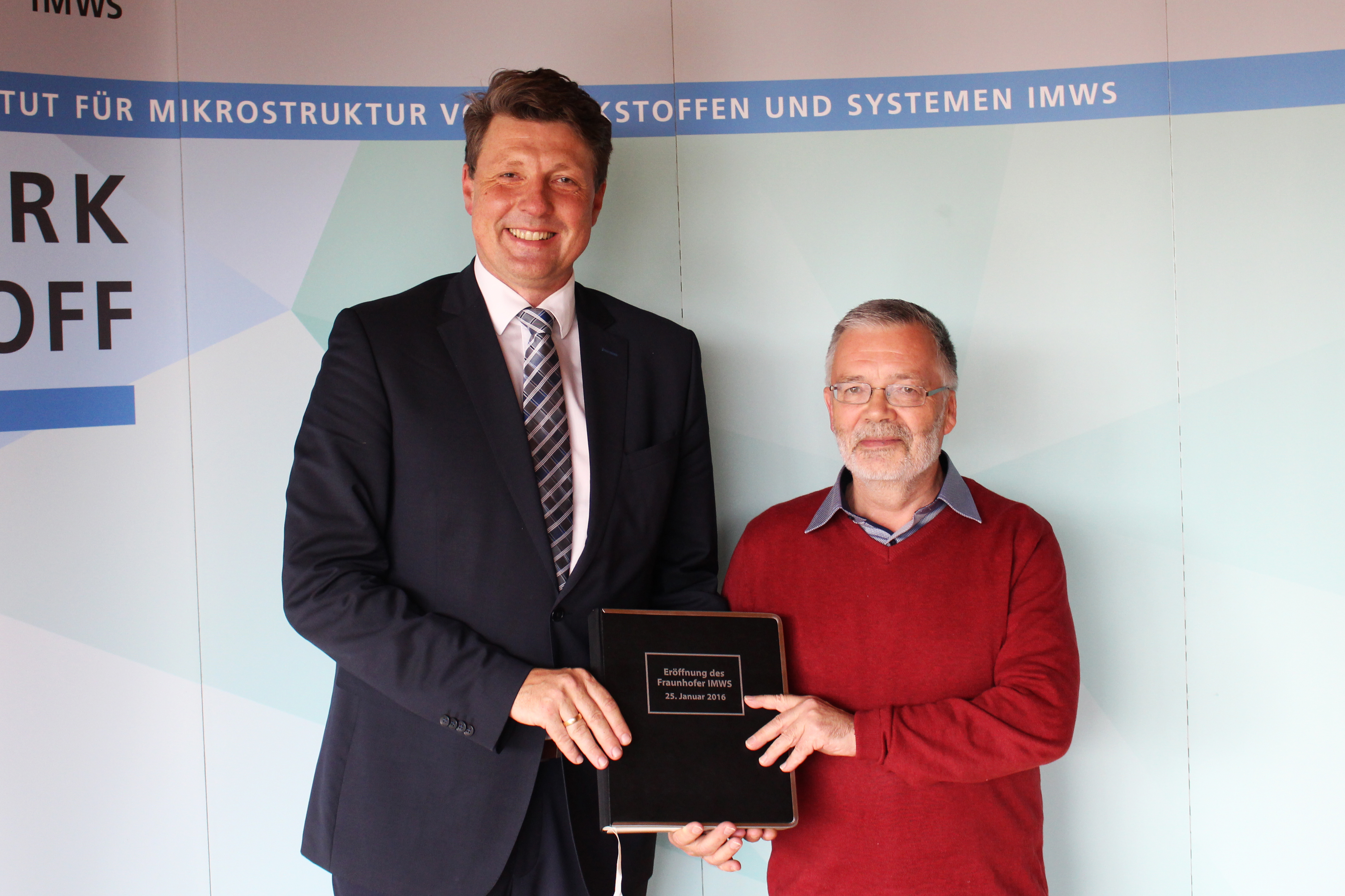Fraunhofer IMWS
Prof. Dr. Matthias Petzold becomes head of the Fraunhofer IMWS
As of today, the Fraunhofer Institute for Microstructures of Materials and Systems IMWS in Halle (Saale) will be headed by Prof. Dr. Matthias Petzold, previously deputy Head of the Institute. Prof. Dr. Ralf B. Wehrspohn, under whose leadership the research institute has developed into an independent institute focusing on microstructure diagnostics and microstructure design, will at the same time assume his new position as Executive Board Member for Technology Marketing and Business Models of the Fraunhofer-Gesellschaft.

Prof. Ralf B. Wehrspohn was elected to the executive board by the senate of the Fraunhofer-Gesellschaft on the 8th of May. He headed the Institute in Halle (Saale) starting in 2006. During this period, the budget increased from approx. 5 to approx. 32 million euros. In January 2016, the Institute, up until then a branch of the Fraunhofer Institute for Material Mechanics IWM in Freiburg, became the second independent Fraunhofer Institute in Saxony-Anhalt and was able to welcome Chancellor Dr. Angela Merkel on the occasion.
“Ralf Wehrspohn has an impressive track record in Halle, for which I would like to thank him on behalf of all members of the Institute. His impressive commitment played a major role in ensuring that the Institute is now in an excellent position at his departure,” says Prof. Matthias Petzold, who will temporarily succeed him until a new director has been found. The 64-year-old physicist has been deputy Head of the Institute since 2003. Since 2008, he has been in charge of the ‘Materials and Components of Electronics’ business unit. The preceding year, he was appointed Honorary Professor of Microsystem Engineering at the Merseburg University of Applied Sciences. His main research focus is the physical failure analysis of microcomponents including the development of new diagnostic and testing methods, for example regarding the strength and reliability of silicon microsystems or of wire bond and solder contacts in microelectronics.
“The economically successful development of the Institute is based on the scientific excellence of our staff and the willingness to focus constantly on the needs of our clients. I would like to further reinforce this combination as a common core element of our strategy. Future mobility, the sustainable use of energy and resources and the need for new smart materials are central challenges of today's world. With our core competencies in microstructure analysis and design, we intend to continue working with our partners in the industry and research to develop solutions to the specific issues involved,” says Petzold. His new deputies, Dr. Sylvia Schattauer, who is responsible for the development of an independent division for hydrogen and carbon cycle technologies, and Prof. Thomas Höche, who is taking over from Petzold, will be at his side with immediate effect.
Wehrspohn will move to Munich as part of his activities for the Fraunhofer Executive Board, but will also retain an office in Halle, where he will primarily focus on activities related to structural change. He will also continue to hold professorship for Microstructure-Based Material Design at the Martin Luther University in Halle-Wittenberg. “I am sure that the institute will be in very good hands after my move to the Fraunhofer Executive Board. The new management team is thoroughly familiar with the research topics, markets and employees. This not only creates continuity for our customers, but also the basis for the continued dynamic development of the Fraunhofer IMWS,” says Wehrspohn.